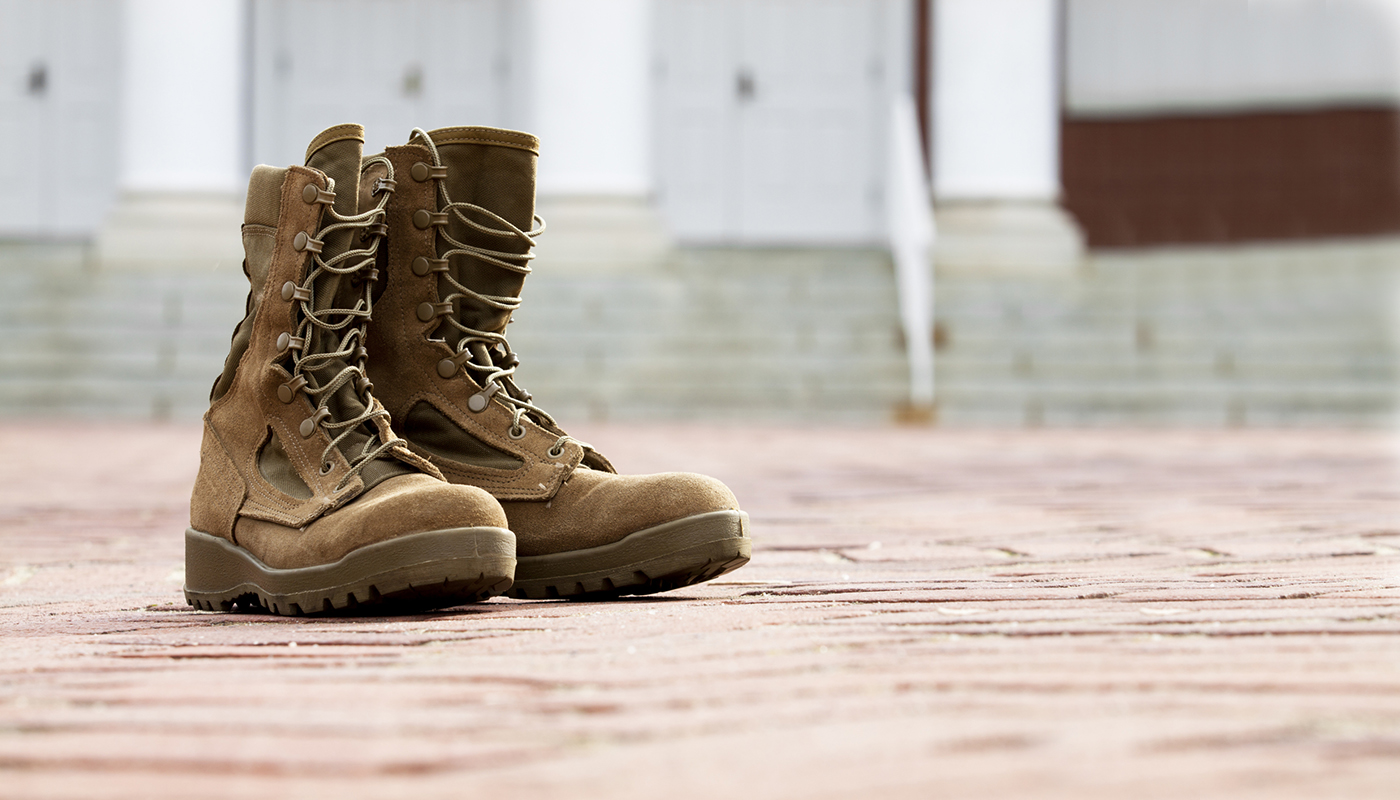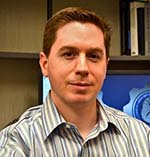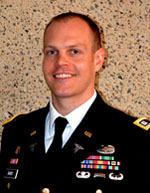A Graduate Student’s Leap from Army Engineer to Psychology
Army Capt. David Barry, a graduate student in the Uniformed Services University’s (USU) clinical psychology program, took a giant leap in a new direction when he arrived on campus three years ago. Until then, he’d spent his entire professional life working as an engineer officer in a mechanized infantry brigade.
Although Barry’s excited about his new career, he also loved being an engineer, even in Iraq, where he spent most of 2008 removing live bombs from the heavily travelled roads that weaved their way through eastern Baghdad.
It was dangerous, unforgiving work. A single misstep could take a limb or his life, and the stress of his job could be overwhelming at times. Luckily, Barry and his platoon had great leaders, strong unit cohesion, and access to many helpful resources, which helped them cope with their stressful jobs.
These support systems worked. The soldiers in Barry’s unit left Iraq feeling like they’d accomplished something important. Other veterans, however, were not returning home with the same optimism. Bothered by their suffering, Barry began exploring careers in military health care and chose USU to begin his new path.
“I’m so grateful to be a part of this learning community,” he said. “USU is the epicenter of military and government. The best of the best work here, which means that, even as students, we can build relationships with key personnel and organizations, setting conditions toward solving national challenges.”
Barry’s professional skills are growing swiftly with guidance from USU’s faculty, especially Mark Ettenhofer, PhD, assistant professor in the Department of Medical and Clinical Psychology and director of the Ettenhofer Neurocognitive Research Laboratory.
Ettenhofer took Barry under his wing several years ago, and the team has been making huge scientific gains ever since. They even developed a computer program that uses eye-trackers—devices that measure ocular movements with acute precision—to study brain injuries.
“The goal of our research is to create a novel performance assessment tool that can identify people with mild TBIs and other conditions that impact cognitive functioning. We are doing this by tracking eye movements and response times during computer assessment tests.” Barry said. “Using this technology, we can measure a lot of information in a short period of time, including a person’s decision-making abilities, higher-order planning and attention.”
The technology, born from two creative minds with engineering experience and clinical psychology expertise, is already showing significant promise as a useful diagnostic supplement. Barry and Ettenhofer have presented their work at multiple conferences, including the Military Health System Research Symposium, the DoD/VA Trauma Spectrum Conference and the Center for Neuroscience and Regenerative Medicine’s Annual Meeting. They will also be speaking at an eye-tracking symposium at the upcoming Association of Psychological Science convention in Washington, D.C. this year.
If the research maintains its current trajectory, Ettenhofer and Barry’s system could help mental health professionals diagnose brain injuries sooner, which will improve treatment and recovery for the same vexing wounds that led Barry to USU in the first place.
Written by Christine Creenan-Jones.


